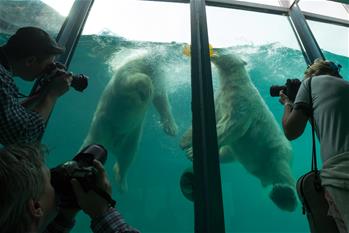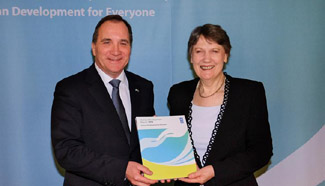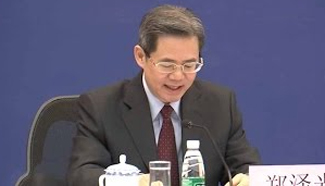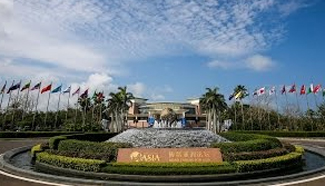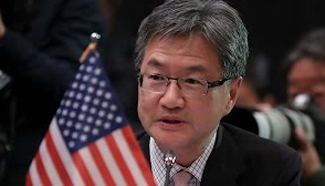BRASILIA, March 22 (Xinhua) -- Amid massive tainted meat scandal, Brazil is struggling to assure the safety of its meat exports, forcing President Michel Temer to make an impassioned defense of the country's meat quality to a group of foreign investors in Brasilia on Tuesday.
"Brazilian meat is always praised by those with the proper taste to try it," Temer told the 2017 Latin American Cities Conference.
He also acknowledged that the scandal had been an embarrassment for the South American country.
"Clearly that caused, I must acknowledge, an embarrassing situation for Brazil because it led some countries in some way to consider suspending meat purchases."
Revelations of meat adulteration in some of the country's largest meat producers led the European Union (EU), South Korea, Chile, among other markets, to announce full or partial suspensions of shipments of meat from Brazil.
Brazil's meat industry is of vital importance to the country. It is the world's largest exporter of beef and chicken, and fourth-largest of pork. In 2016, Brazilian meat exports to the world brought in around 11.6 billion U.S. dollars and represented 7.2 percent of all Brazilian exports.
However, last Friday, an operation by federal police across the country revealed lower than standard practices among frozen meat companies.
Operation "Carne Debil" or "Weak Flesh" in English, was a two-year investigation by federal police into sub-par standards in the Brazilian meat industry. The scandal was revealed when police found that some of Brazil's largest food companies, including titans of the country's agroindustry, the JBS group and Brasil Foods (BRF), had committed fraud in order to hide and sell foodstuffs beyond their sell-by date.
The frozen meat vendors are accused of hiding the use of expired raw materials, using chemicals to mask the bad smell of rotten produce and of failing to meet standards in their production. Agricultural officials were even paid off to look the other way and release these products for sale.
According to Temer, only three refrigeration plants have been suspended and 19 more are under investigation, among 4,383 nationwide.
Temer was seeking to minimize damage from the corruption probe that alleges meatpackers bribed inspectors. "If there are manipulations, they must be investigated," he said.
Up to now, 27 people have been arrested, including those from JBS and BRF, while 33 agriculture officials have been fired. The 21 plants involved in the case are limited to three states, with 18 in the southern state of Parana, two in the central state of Goias and one in Santa Catarina.
JBS, the largest meat processing company in the world, posted a statement on its website to clarify its stance. "In the last two years, JBS units have received 340 quality audits and acted with the same zeal to ensure an equal commitment from its suppliers."
"JBS is the most interested in strengthening Brazil's sanitary inspections...a rigorous quality control system gives credibility for the consumer and reinforces our export opportunities," it continued.
The company said that none of its management had been targeted by the investigation and repeated its willingness to cooperate with authorities.
The Brazilian government on Monday temporarily suspended exports by 21 frozen meat companies accused of being part of a network which sold tainted or expired meat.
Agriculture Minister Blairo Maggi said in a statement that despite the operation there was no risk in eating Brazilian meat. "There is no reason to worry. Our system was working. What happened was a deviation and these people have been caught," he said.
However, Brazil's trading partners responded quickly to close their borders. The EU has suspended beef, chicken and other imports from the companies involved. Chile and South Korea similarly slapped restrictions on Monday.
On Tuesday, Mexico followed suit, banning poultry products from Brazil. "Due to the uncertain condition which this market (Brazil) presents at the moment...(we) have decided to restrict as a precautionary measure the introduction of these products into the country," read a government statement.
China on Tuesday also voiced concern over meat quality problems in Brazil and has taken preventive and provisional protection to ensure the safety of Chinese consumers.
A meat scandal in Brazil is nothing new. In 2012, an outbreak of BSE, better known as mad cow disease, in Parana saw meat imports banned by a number of countries, including the United States and China.
It took years for this fallout to be contained. Former President Dilma Rousseff courted a lifting of restrictions personally in the United States but it was only in 2016 that Washington agreed to do so.
It is also a body blow both to Temer's agenda and Brazil's international image. With a two-year recession and investor faith hit by a lengthy corruption scandal, the country was in need of good news.
The credit rating agency Moody's said in a note on Tuesday that "it is far too early to quantify the impact or how long it will last...exports will suffer as importing countries hold off on purchases before learning more about sanitary implications related to specific shipments." Coincidentally, on Monday, a new round of negotiations began in Buenos Aires for a free-trade agreement between the EU and Mercosur (Argentina, Brazil, Paraguay and Uruguay). The European Commission stated the same day that a deal with Mercosur would have to see its countries increase food security standards to match European demands. Enditem



